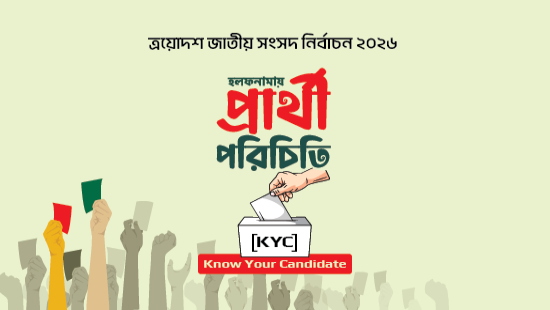Press Release
Dhaka, March 27, 2025: In Bangladesh, customers have to pay 7 to 15 times higher service charges for mobile financial services (MFS) compared to commercial banks. The rates are also several times higher than those in neighboring countries. Customers even pay for services that don’t cost anything in other countries. TIB notes this observation in its research report launched at a press conference titled “Governance Challenges and the Way Forward in the Mobile Financial Services (MFS) Sector.” TIB stated that through a tripartite collusion among MFSP entrepreneurs, regulatory and supervisory authorities, and politically influential individuals, the sector has been captured by influencing policy-making, manipulating oversight mechanisms, and misusing state institutions. As a result, MFS has been used for financial exploitation of the public, embezzlement of state funds, bribery, and money laundering. To overcome the prevailing governance challenges in the mobile financial services sector, TIB has put forward 13 specific recommendations.
The study finds that customers in Bangladesh’s Mobile Financial Services (MFS) sector are paying 7 to 15 times more in service charges than those using commercial banks. In 2024, for cash-out transactions totaling BDT 550,000 crore, customers were charged an estimated BDT 4,410 crore to BDT 10,197 crore, while commercial banks collected only BDT 639 crore for similar withdrawals. Bangladesh also has the highest MFS service charges among neighboring countries. For instance, withdrawing BDT 25,000 via bKash costs BDT 372.5 to BDT 462.5, compared to BDT 355.7 in Pakistan (Easypaisa), BDT 231.3 in Myanmar (Wave Pay), and no charge in India (Phone Pay). The study highlights that customer interests are often neglected, with fraud rates rising alarmingly. A lack of comprehensive legal framework, discriminatory practices, and limited regulatory powers for Bangladesh Bank have enabled a monopolistic market, dominated by bKash (84.4%) and Nagad (30.9%) of personal account holders.
The study finds that the MFS sector lacks long-term planning and is plagued by ad hoc decisions, weak policies, legal gaps, and undue influence from political and vested interest groups. A tripartite collusion among MFSP entrepreneurs, regulators, and political elites has captured the sector by manipulating policy, oversight, and state institutions. This has stifled competition and opened doors to public exploitation and state fund embezzlement. Alarming misuse of MFS for fraud, bribery, online gambling, and money laundering has also been revealed. Despite efforts by regulators to block gambling platforms, MFSPs have failed to prevent such transactions. In 2022 alone, around USD 7.8 billion (BDT 75,000 crore) was laundered through MFS. MFSPs also lack adequate capacity to detect and prevent suspicious and hundi transactions. The study shows 6.3% of personal, 17% of agent, and 1.6% of merchant MFS users faced fraud, with 3.6%, 8.7%, and 1.4% respectively suffering financial losses ranging from BDT 53 to BDT 376,000.
The study also reveals that Nagad’s operating company, Third Wave Technologies Ltd/Nagad Ltd, violated MFS regulations by creating around BDT 645 crore in excess e-money beyond trust fund limits, risking customer funds. It also identifies misuse of influence in distributing government allowances and money laundering through MFSPs. Media reports indicate that about BDT 2,356 crore was embezzled and laundered abroad via unnamed shareholders of Nagad through irregular e-money creation and fraudulent allowance distribution.
TIB Executive Director Dr. Iftekharuzzaman stated, “To capture the MFS sector, politically influential groups have exploited policy and legal loopholes under their protection and used regulatory bodies to serve their interests. In particular, unethical advantages were extended to ‘Nagad’, allowing politically powerful vested groups to benefit, thereby destroying the scope for open competition in this vital sector. Due to weak policy frameworks, we now see a monopoly by one entity in the market. Moreover, although the sector claims to promote inclusion, women and marginalized communities are being excluded from the real benefits. As MFS providers alone determine service charges, customers are forced to pay much higher fees compared to conventional banking services—an extra burden especially for the marginalized, women, and disadvantaged groups. These unusually high rates also fail to meet international standards. We urge the authorities to investigate this matter and call for a complete reform of the sector through a robust policy and legal framework to ensure the protection of consumers’ rights.”
Highlighting the long-term economic risks posed by the use of MFS for bribes, money laundering, online gambling, and cryptocurrency transactions, TIB Executive Director said, “One key reason behind the record surge in foreign remittance in FY 2024–25 after the fall of the authoritarian regime is the control over illegal hundi transactions conducted through MFS. However, this control was not achieved due to strict regulations, but rather because of the downfall of the vested groups previously involved in money laundering through MFS. We hope the relevant authorities of the interim government will take initiative to sustain this positive change. At the same time, where earlier bribes were exchanged directly, now they are being transacted through MFS. Therefore, the MFS sector must be brought under the tax regime. This will help detect income inconsistent with legal earnings, tax evasion, and bribe transactions.”
Based on the findings, TIB made 13 recommendations, including enacting a separate law for the MFS sector to ensure fair competition, financial inclusion, transparency, and accountability. The law should define the roles of all stakeholders. TIB also recommended aligning MFS governance with international best practices, capping and monitoring service charges and commissions for agents and distributors, and amending the 2019 Money Laundering Prevention Rules to allow BFIU intelligence reports as court evidence. It urged a significant reduction in service charges in consideration of customer interest and called for making inter-transaction systems across financial institutions easier and more affordable. TIB further emphasized the need for thorough investigations into all irregularities and corruption in the sector and ensuring exemplary punishment for those involved, regardless of status or affiliation.
In addition to TIB's Executive Director Dr. Iftekharuzzaman; Professor Dr. Sumaiya Khair, Advisor, Executive Management; and Muhammad Badiuzzaman, Director, Research and Policy; were present at the press conference. TIB Research Fellow, Qualitative Mohammad Nure Alam and Research Associate, Qualitative Kazi Aminul Hasan presented the report. TIB Outreach and Communication Director Mohammad Tauhidul Islam moderated the press conference.
Media Contact:
Mohammad Tauhidul Islam
Director, Outreach and Communication
Phone: +8801713107868
Email: tauhidul@ti-bangladesh.org






